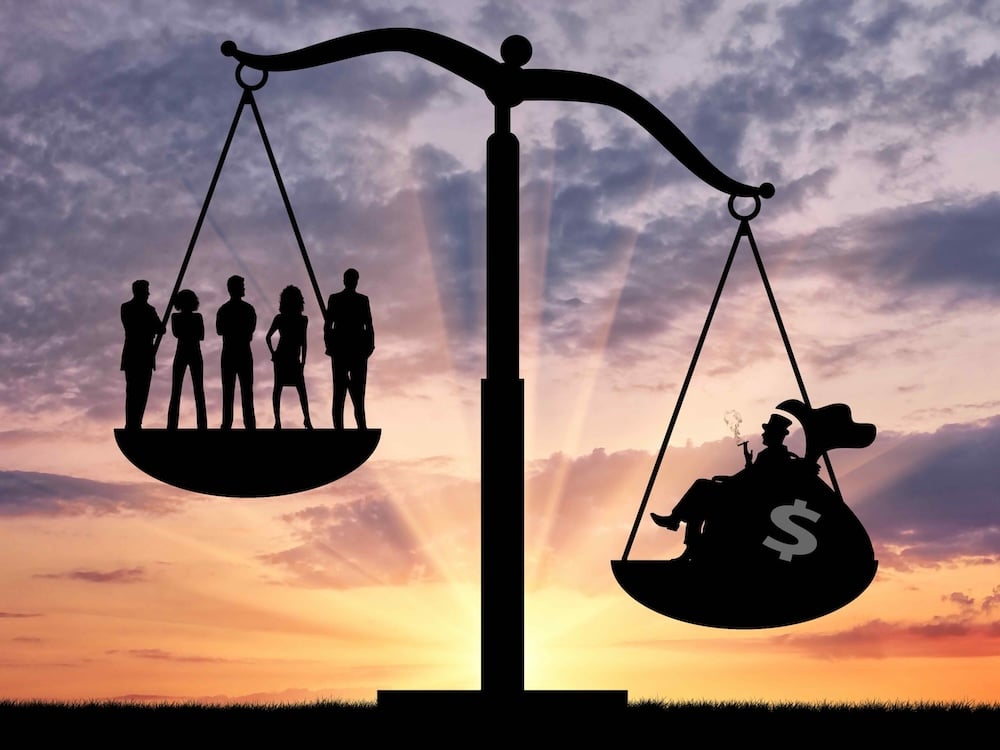Top Stories
Wealth Gap Soars as Canada’s Rich See Record Gains

Canada has recorded a significant rise in wealth inequality, with the richest Canadians seeing substantial increases in their fortunes. According to Statistics Canada, the income gap reached an all-time high in 2023, highlighting a trend where the wealthiest 1% now hold more than 10% of the country’s total income. This financial disparity raises critical questions about economic equity and social mobility.
The surge in wealth for the affluent can be attributed to various factors, including soaring real estate prices and a booming stock market. In metropolitan areas like Toronto and Vancouver, home prices have skyrocketed, creating a situation where those already possessing assets have reaped even greater rewards. The Canadian Centre for Policy Alternatives indicates that while middle- and lower-income households have struggled to keep pace, the top earners have enjoyed windfalls.
Real Estate and Market Trends Driving Wealth Accumulation
The real estate market has played a pivotal role in this widening gap. Average home prices in Canada surged by approximately 16% in 2023 alone, driven by low interest rates and high demand. For many Canadians, homeownership has become increasingly elusive, with the average price of a home in Toronto exceeding $1 million. This trend disproportionately benefits those who already own property, allowing them to build wealth through equity gains.
In addition to real estate, the stock market’s performance has been a significant factor. The S&P/TSX Composite Index reached record highs, with many of the largest corporations reporting robust profits. The increase in stock values has primarily benefited wealthy investors, who possess the capital to invest in equities. As a result, their net worth has expanded significantly.
Policy Implications and the Call for Change
The growing income gap has sparked debates about the effectiveness of current economic policies. Critics argue that tax structures favor the wealthy, perpetuating inequality. The Canadian Centre for Policy Alternatives advocates for progressive taxation and greater investments in social services to alleviate the burden on lower-income families.
As policymakers grapple with these issues, public sentiment is increasingly leaning towards reform. Many Canadians are calling for measures that promote equitable wealth distribution and improve access to essential services, such as healthcare and education. The financial landscape of Canada in 2023 serves as a stark reminder of the challenges posed by economic disparity.
In conclusion, as Canada’s income gap reaches unprecedented levels, the implications for social cohesion and economic stability are profound. Addressing these disparities will require concerted effort from both government and society to create a more equitable future for all Canadians.
-

 Science2 months ago
Science2 months agoToyoake City Proposes Daily Two-Hour Smartphone Use Limit
-

 Health2 months ago
Health2 months agoB.C. Review Reveals Urgent Need for Rare-Disease Drug Reforms
-

 Top Stories2 months ago
Top Stories2 months agoPedestrian Fatally Injured in Esquimalt Collision on August 14
-

 Technology2 months ago
Technology2 months agoDark Adventure Game “Bye Sweet Carole” Set for October Release
-

 World2 months ago
World2 months agoJimmy Lai’s Defense Challenges Charges Under National Security Law
-

 Technology2 months ago
Technology2 months agoKonami Revives Iconic Metal Gear Solid Delta Ahead of Release
-

 Technology2 months ago
Technology2 months agoSnapmaker U1 Color 3D Printer Redefines Speed and Sustainability
-

 Technology2 months ago
Technology2 months agoAION Folding Knife: Redefining EDC Design with Premium Materials
-

 Technology2 months ago
Technology2 months agoSolve Today’s Wordle Challenge: Hints and Answer for August 19
-

 Business2 months ago
Business2 months agoGordon Murray Automotive Unveils S1 LM and Le Mans GTR at Monterey
-

 Lifestyle2 months ago
Lifestyle2 months agoVictoria’s Pop-Up Shop Shines Light on B.C.’s Wolf Cull
-

 Technology2 months ago
Technology2 months agoApple Expands Self-Service Repair Program to Canada









